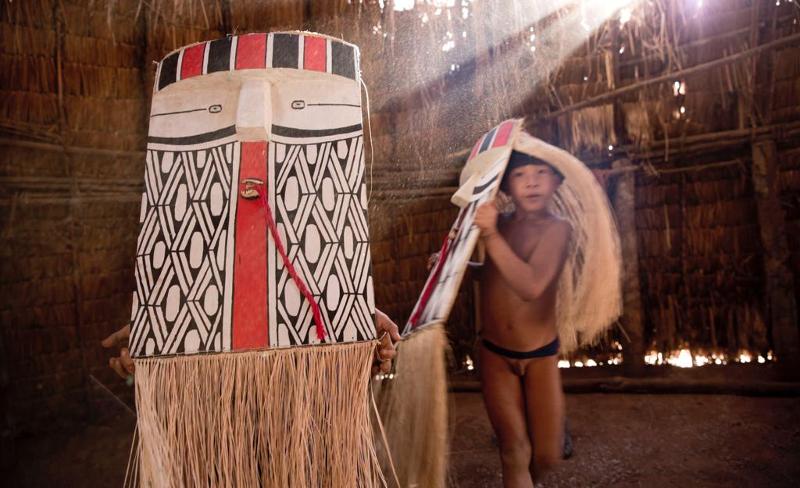Veronica Monachini de Carvalho, visiting PhD Fellow from University of Campinas in Brazil, will show examples of her film work with indigenous communities.
Title of film: Osiba Kangamuke - Let’s go kids
Year: 2016
Length: 20 minutes
Director/filmmaker: Haya Kalapalo, Tawana Kalapalo, Thomaz Pedro and Veronica Monachini de Carvalho
Country/location of film: Xingu Indigenous Land, Brasil
The film "Osiba Kangamuke - Come on, children" is a collective production among indigenous filmmakers, non-indigenous and anthropologists. The short is the result of a workshop held with the Kalapalo children, who participated not only in front of the cameras, but also throughout the recording process. From the school, where they learn Portuguese, to the rituals and the ikindene struggle, the little Kalapalo present the traditions from their own perspective.
Title of film: Kuteholü Kagaiha - We Would Have Turned White
Work-in-progress Movie
Length: 5 minutes
Director/filmmaker: Thomaz Pedro and Veronica Monachini de Carvalho
Country/location of film: Xingu Indigenous Land, Brasil
The Kalapalo people, living in the Xingu Indigenous Land (central Brazil), manage to get a copy of a film from the 50s that was recorded in their village. The entire community gathers to watch the film. The older ones remember their ancestors and old stories. A group of young indigenous filmmakers decide to make a new film, telling their version of the story of the marriage of Jakuí Kalapalo and the white Ayres Camara Cunha, portrayed in the old film.
Veronica Monachini de Carvalho is a PhD candidate in Social Anthropology at the University of Campinas, Brazil. She has a BA in Social Sciences (2014) and a Master in Social Anthropology (2021) from the same university. Was a visiting scholar at the New School of Social Research in 2020. She is currently on an exchange visit to UiT as part of the Ekologos project, coordinated by professor Michael Heneise. Her research interests are indigenous ethnology, ways of knowledge, childhood and lands studies. Since 2014, she has been carrying out research, outreach, and filmmaking projects with the Kalapalo people, Karib-speakers from the Upper Xingu (Southern Amazon).
